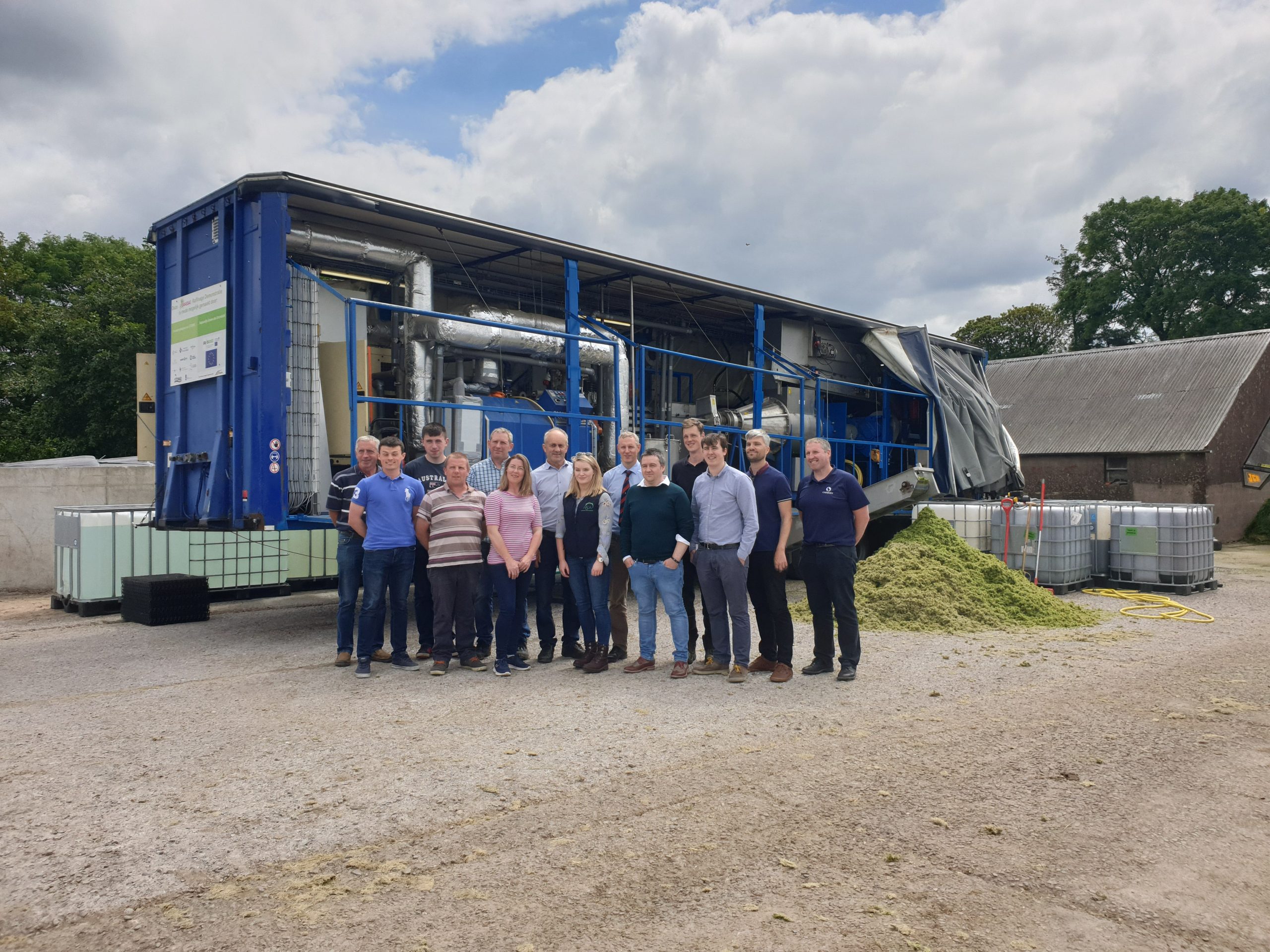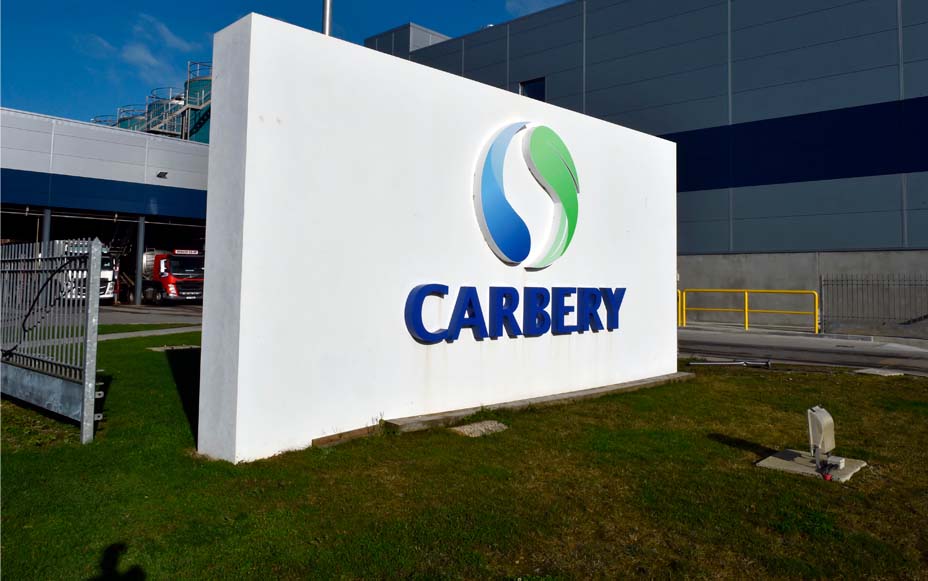Carbery Group and partners receive €3m funding from Department of Agriculture to invest in anaerobic digestion and grass biorefining as part of Farm Zero C project

31 January 2023: Carbery Group and partners receive a €3 million investment for an integrated anaerobic digestion and green biorefining development from the Department of Agriculture, Food and the Marine, as part of the Farm Zero C project.
The funding has been jointly awarded to UCD and Munster Technological University (MTU) for the further development of climate neutral farming as part of the Farm Zero C research project currently being undertaken on the Shinagh Estates Demonstration Farm based in West Cork.
On behalf of Carbery, Enda Buckley, Director of Sustainability said: “Carbery has had a focus since our foundation on creating a circular economy, and we are known for using every part of the milk that we process. As part of that circular model, we have had anaerobic digestion (AD) on-site in our plant in Ballineen for more than 40 years. With grass biorefining and AD, we are excited, with the support of the department, to bring that concept of valorisation, or adding value, into the farming model. This project will allow us to extract value from every part of the grass and is an essential component of the model for climate neutral farming that we are trying to create via the Farm Zero C project. It’s a great boost for the project and for West Cork and farming.”
Minister for Agriculture Charlie McConalogue said: “Agriculture accounted for 33.33% of Ireland’s greenhouse gas (GHG) emissions in 2021, down from 34% in 2020. The trend for reductions in emissions needs to be sustained and accelerated, which will be done through, and supported by, Government policy. This funding will be used to create an integrated anaerobic digestion and grass biorefinery demonstration unit, which will demonstrate the potential to both displace off-farm emissions through green biorefinery and to also support the transition to alternative land uses through anaerobic digestion as a diversification option.”
Director of BiOrbic and project co-lead, UCD’s Professor Kevin O’Connor said: “The Farm Zero C project hosted by BiOrbic, Bioeconomy SFI Research Centre, is delighted to receive funding from DAFM to deploy on-farm grass biorefining and anaerobic digestion facilities at Shinagh. Irish farmers produce high quality food, and this can be complemented with other revenue streams from anaerobic digestion and biorefining such as renewable energy, biobased materials, and bio-actives.”
The Farm Zero C project was the winner of the SFI Zero Emissions Challenge. The SFI Zero Emissions Challenge supported academic research teams to work with societal stakeholders to develop innovative ideas aimed at achieving a target of net-zero economy-wide greenhouse gas emissions by 2050. The project, co-led by the BiOrbic national bioeconomy research centre, based at UCD, and the Carbery Group, a farmer-owned cooperative based in West Cork, has the objective to create an economically viable, climate neutral dairy farm.
The project presents a holistic approach, focusing on reducing greenhouse gas (GHG) emissions, improving biodiversity, water and air quality. The development of an integrated anaerobic digestion and green biorefining demonstration facility offers the opportunity for the project to demonstrate climate action and diversification opportunities through the development of renewable energy sources and the displacement of off-farm emissions associated with a dairy farm through production of local sources of protein.
MTU has played a key role in research carried out in grass biorefineries to date. James Gaffey, Co-Director CircBio, MTU welcomed further developments in this area: “Munster Technological University and CircBio are delighted to be part of this important announcement from DAFM and Farm Zero C. We have been leading research on grass biorefinery in close collaboration with UCD, Carbery and other partners over several years, and this work has shown enormous potential for this model to improve the sustainability and value of grass. Given Ireland’s abundance of grassland, the grass biorefinery model represents a replicable model for bioeconomy development in Ireland, improving feed and energy resilience while bringing new sustainable high-value products to the market.”
company news

